Service Learning Trips vs Traditional Field Trips: Which Is Better for Your Students Future?
- Caleb Mullenix
- Nov 2, 2025
- 7 min read
Updated: Nov 6, 2025
Choosing the right educational experience for your students represents one of the most impactful decisions you will make as an educator. The choice between service learning trips and traditional field trips directly influences how your students develop critical thinking skills, build empathy, and prepare for their future roles as engaged citizens. Understanding the distinct advantages of each approach ensures you select the experience that best aligns with your educational objectives and student needs.
Understanding Service Learning Trips
Service learning trips combine academic instruction with meaningful community service, creating reciprocal relationships between students and the communities they serve. These experiences follow a structured five-step process: investigation, planning, action, reflection, and demonstration. This methodology ensures students engage deeply with real-world challenges while developing practical skills that extend far beyond the classroom.
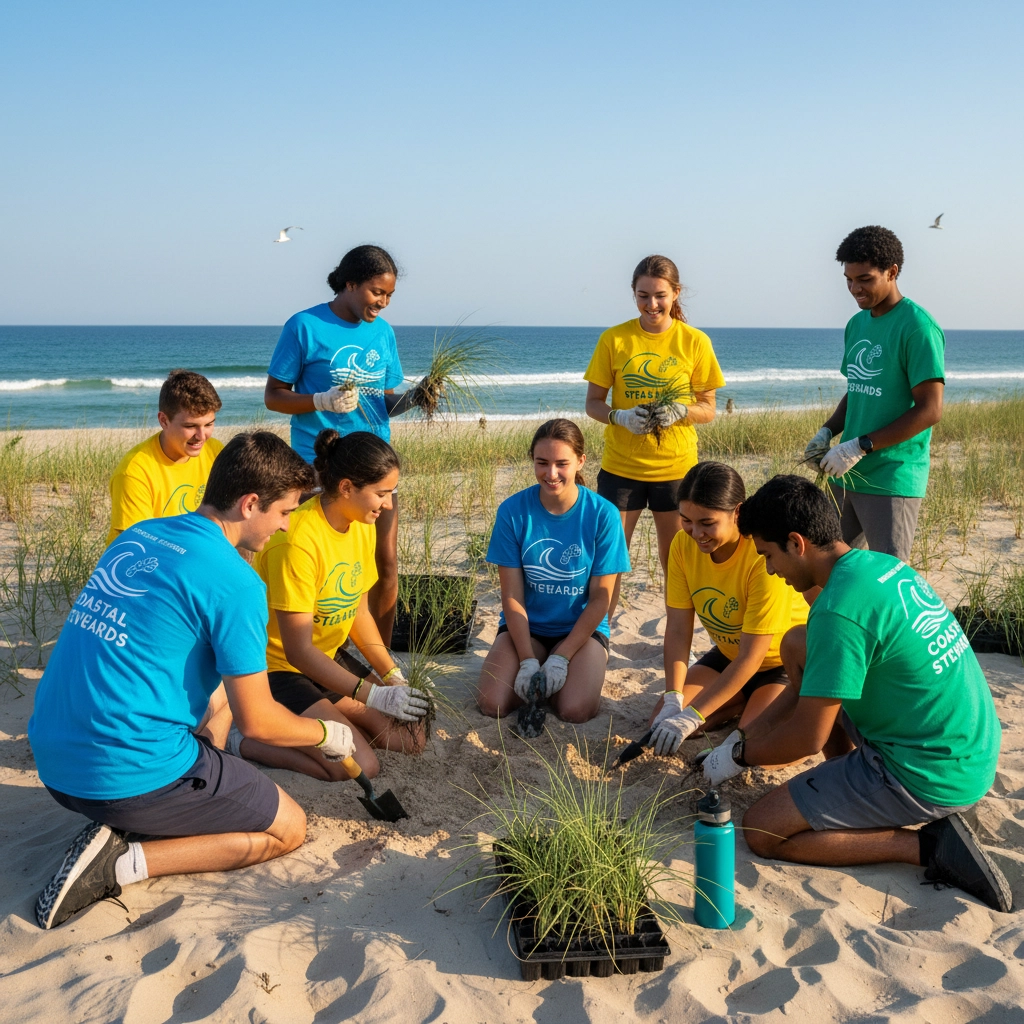
Key Benefits of Service Learning Experiences
Academic and Personal Development Integration Service learning trips excel at developing social responsibility, communication skills, and self-esteem in participating students. Research consistently demonstrates that students engaged in service learning experiences show measurable improvements in empathy, cultural understanding, and leadership capabilities. The hands-on nature of these programs allows students to see the direct impact of their contributions, creating powerful motivation for continued learning and civic engagement.
Real-World Problem Solving Skills Students participating in service learning trips tackle authentic challenges facing communities. Whether conducting marine conservation research, supporting environmental restoration projects, or engaging in educational outreach programs, students develop critical thinking skills through practical application. This approach transforms abstract classroom concepts into tangible, meaningful work that students can see making a difference.
Long-Term Skill Development The collaborative nature of service learning builds communication skills, teamwork abilities, and cultural competency that serve students throughout their academic and professional careers. Students learn to navigate diverse perspectives, adapt to unexpected challenges, and work effectively with community partners from different backgrounds and experiences.
Considerations for Service Learning Implementation
Service learning trips require extensive planning and coordination with community partners. These programs typically demand longer time commitments than traditional field trips, ranging from week-long intensive experiences to multi-month engagements. The complexity of coordinating meaningful service opportunities means educators must invest significant preparation time to ensure successful outcomes.
Budget considerations vary significantly depending on the service focus and destination. While some programs may offset costs through partnerships with local organizations, others require substantial investment in transportation, accommodation, and program materials.
Examining Traditional Field Trips
Traditional field trips provide students with direct, sensory-rich experiences in authentic learning environments. These excursions connect classroom instruction to real-world applications through visits to museums, historical sites, natural environments, and cultural institutions. The immediate, tangible nature of these experiences creates memorable learning moments that enhance knowledge retention and academic performance.
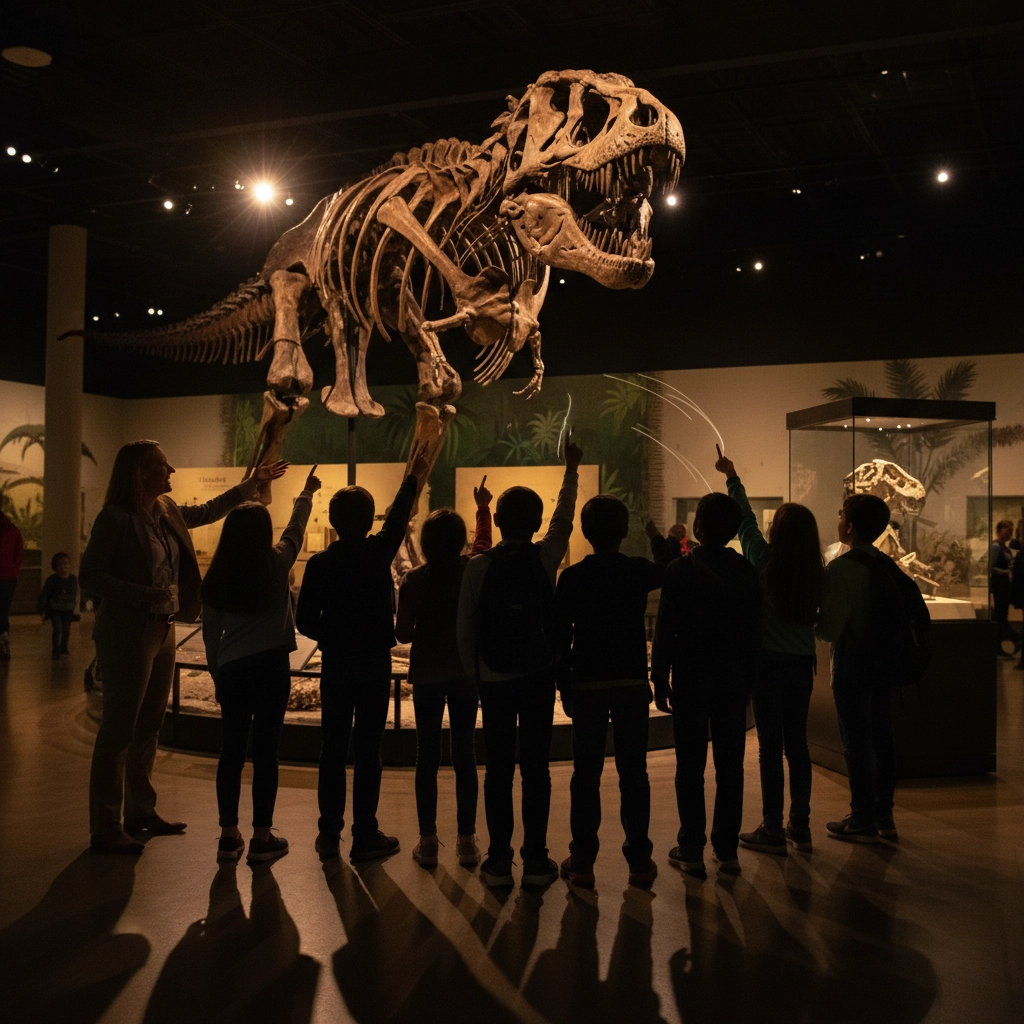
Documented Academic Benefits
Research reveals compelling evidence supporting traditional field trip effectiveness. Studies show that 59% of students who participate in field trips demonstrate higher academic performance compared to their peers. Students attending field trips also exhibit increased graduation rates and higher lifetime earning potential, indicating long-term benefits extending well beyond immediate academic gains.
Science-focused field trips show particularly strong correlation with improved standardized test scores. Students experiencing hands-on science learning in authentic environments consistently outperform peers on state-level achievement examinations. This data suggests that traditional field trips provide measurable academic advantages, particularly for visual learners who struggle with traditional classroom instruction methods.
Enhanced Cultural and Social Development
Traditional field trips contribute to cultural enrichment while decreasing student absenteeism and behavioral infractions. Exposure to diverse environments, whether historical sites, natural ecosystems, or cultural institutions, broadens student perspectives and builds appreciation for learning beyond the classroom walls.
Students participating in field trips demonstrate increased curiosity and engagement with academic subjects. Approximately 89% of field trip participants report feeling more inquisitive about their studies following these experiences, indicating significant motivational benefits that extend into regular classroom instruction.
Implementation Advantages
Traditional field trips offer greater flexibility in scheduling and destination selection. Educators can select from numerous options including local museums, regional parks, historical sites, or specialized educational facilities. This flexibility allows for better alignment with specific curriculum requirements and budget constraints.
The streamlined planning process for traditional field trips makes them more accessible for schools with limited resources or tight scheduling requirements. Most field trips can be completed within a single day, minimizing disruption to regular academic schedules while still providing meaningful learning experiences.
Direct Comparison: Service Learning vs Traditional Field Trips
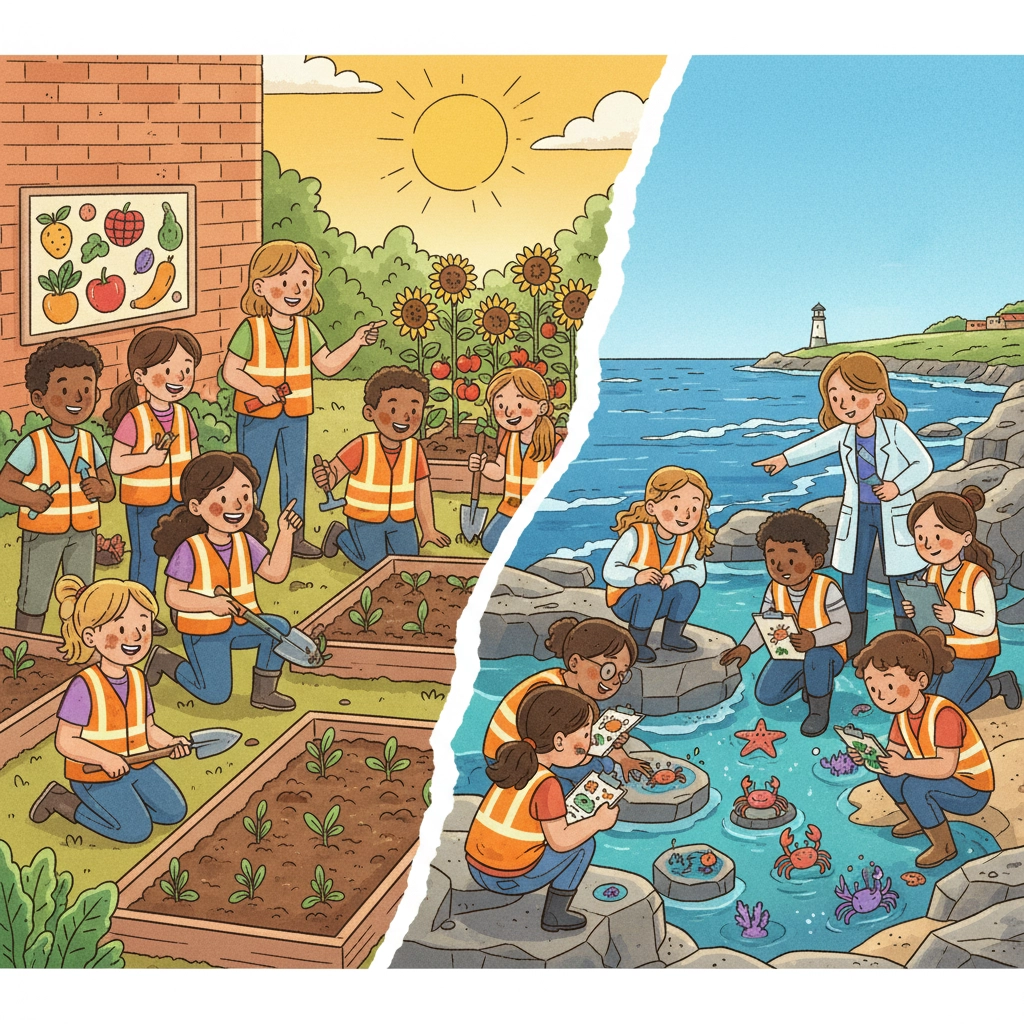
Time Investment and Scheduling
Service learning trips typically require multi-day commitments, ranging from intensive weekend experiences to week-long programs. This extended timeframe allows for deeper engagement with communities and more comprehensive skill development. However, the time investment may present challenges for schools with rigid academic calendars or limited substitute teaching resources.
Traditional field trips offer greater scheduling flexibility, with most experiences completed within a single school day. This accessibility makes them easier to integrate into existing curriculum timelines while minimizing disruption to other academic subjects.
Educational Focus and Outcomes
Service learning trips excel at developing social responsibility, empathy, and real-world problem-solving skills. Students gain practical experience working with diverse communities while building communication and leadership capabilities that serve them throughout their lives.
Traditional field trips strengthen academic knowledge retention and create powerful connections between classroom instruction and real-world applications. The immediate, sensory-rich experiences enhance memory formation and improve performance on standardized assessments.
Budget and Resource Requirements
Service learning trips involve variable costs depending on destination, duration, and service focus. Some programs offset expenses through community partnerships, while others require significant investment in transportation, accommodation, and program materials. The complex coordination requirements may also necessitate additional staff time and administrative support.
Traditional field trips typically involve more predictable costs centered on transportation and admission fees. The streamlined planning process requires fewer administrative resources, making them more accessible for schools with limited budgets or planning capacity.
Strategic Recommendations for Maximum Educational Impact
Combine Both Approaches for Comprehensive Student Development The most effective educational programs incorporate both service learning trips and traditional field trips throughout the academic year. This hybrid approach allows educators to leverage the unique strengths of each experience type while providing students with diverse learning opportunities.
Begin with traditional field trips to build foundational knowledge and create initial connections between classroom concepts and real-world applications. Use these experiences to identify student interests and aptitudes that can guide later service learning opportunities.
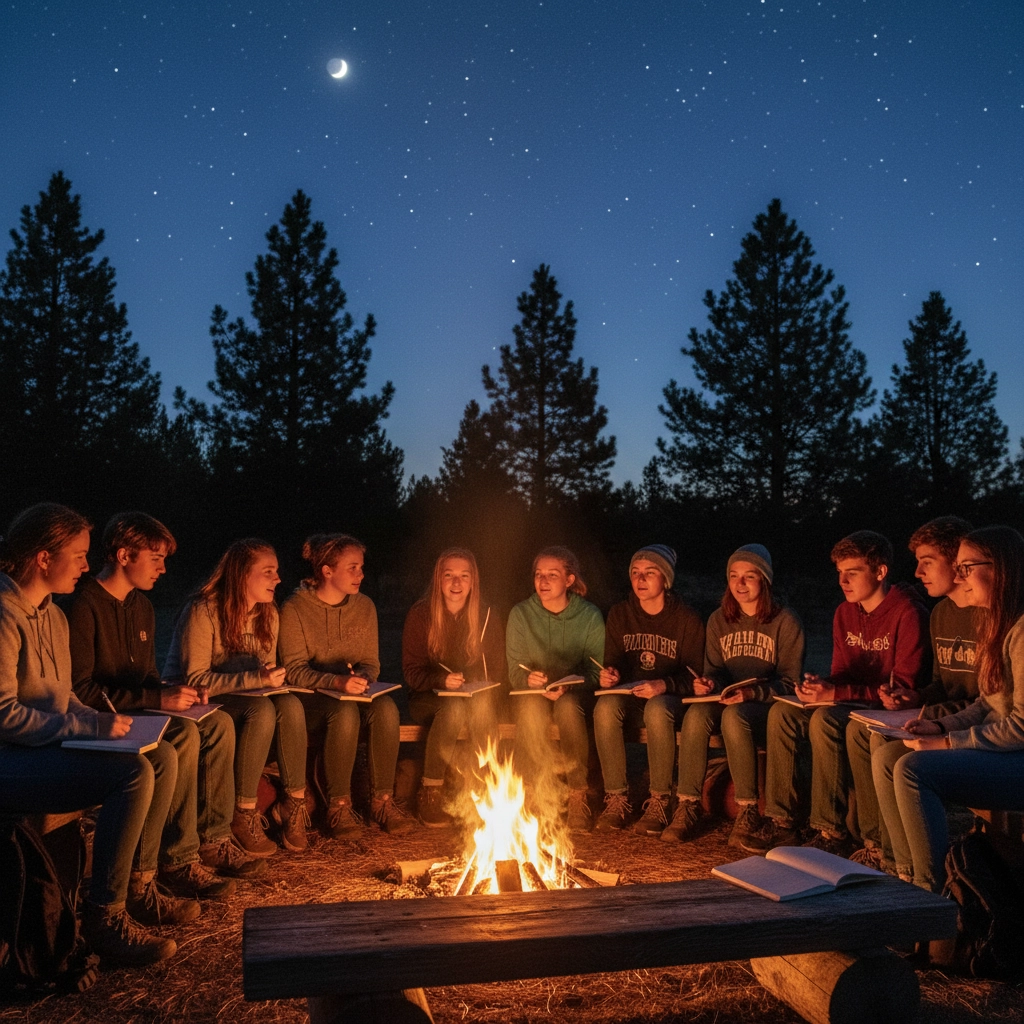
Align Experiences with Student Developmental Stages Younger students often benefit most from traditional field trips that provide concrete, memorable experiences supporting foundational learning. The immediate, sensory-rich nature of museum visits, nature center explorations, and historical site tours creates powerful learning memories that enhance knowledge retention.
Older students typically gain more from service learning experiences that challenge them to apply knowledge in meaningful ways while developing social responsibility and leadership skills. The complex problem-solving and collaboration requirements of service learning align well with adolescent developmental needs for autonomy and purpose.
Consider Subject-Specific Applications
Science education benefits tremendously from both approaches. Traditional field trips to natural environments, science museums, and research facilities provide hands-on learning experiences that improve standardized test performance. Service learning opportunities in environmental conservation, marine science research, or sustainability projects allow students to apply scientific knowledge while contributing to meaningful community goals.
Social studies instruction integrates exceptionally well with both experience types. Traditional visits to historical sites and cultural institutions build foundational knowledge, while service learning projects addressing community issues develop civic engagement and social responsibility.
Implementation Guidelines for Success
Establish Clear Learning Objectives Begin planning by identifying specific educational outcomes you want to achieve. Traditional field trips excel at reinforcing academic content and creating memorable learning experiences. Service learning trips focus on developing social responsibility, communication skills, and real-world problem-solving abilities.
Communicate these objectives clearly to students, parents, and chaperones before the experience begins. This preparation ensures all participants understand the educational purpose and can contribute to achieving desired outcomes.
Prepare Students Thoroughly Invest time in pre-trip preparation regardless of which approach you select. For traditional field trips, provide background information about destinations and establish clear behavioral expectations. Create specific observation tasks or reflection questions that help students focus on key learning objectives during the experience.
Service learning trips require more extensive preparation including cultural awareness training, skill development workshops, and collaboration planning sessions. Students must understand their role as service providers and develop realistic expectations about the communities they will serve.
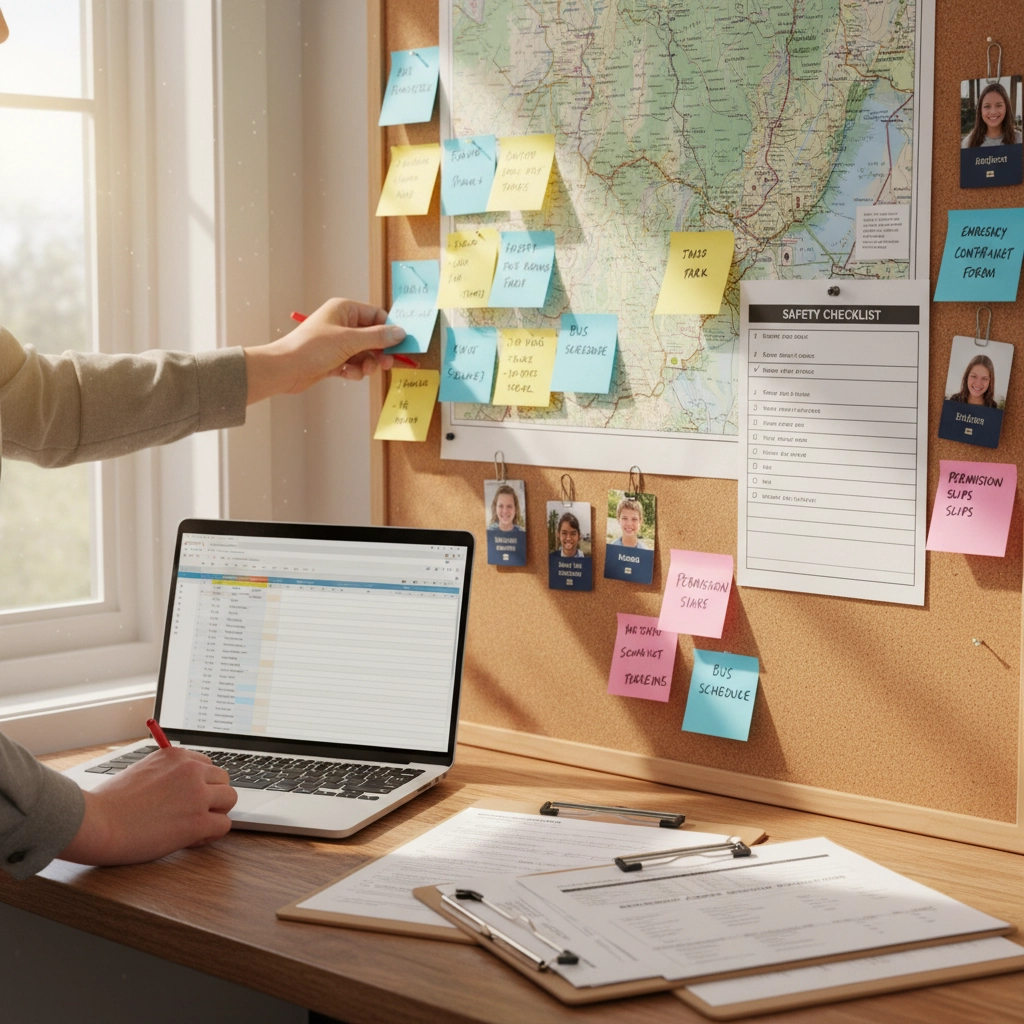
Plan for Meaningful Follow-Up Both experience types require structured reflection and follow-up activities to maximize educational impact. Traditional field trips benefit from immediate debriefing sessions, creative projects showcasing new learning, and connections to ongoing classroom instruction.
Service learning experiences demand more extensive reflection processes including written journals, group discussions, and presentation opportunities. Students should analyze their service impact, identify personal growth areas, and consider long-term civic engagement opportunities.
Ensure Safety and Risk Management Implement comprehensive safety protocols regardless of which experience type you select. Conduct thorough site visits, establish emergency communication procedures, and ensure adequate supervision ratios. Create detailed itineraries and share them with school administrators, parents, and emergency contacts.
Service learning trips may involve additional safety considerations due to unfamiliar communities and work environments. Coordinate closely with community partners to understand local conditions and establish appropriate safety protocols.
Making the Decision: Which Approach Serves Your Students Best?
The choice between service learning trips and traditional field trips depends on your specific educational goals, student population, and available resources. Both approaches provide documented benefits that enhance student learning and development in distinct ways.
Select traditional field trips when your primary objectives include academic knowledge reinforcement, standardized test preparation, or introducing students to new subjects and career possibilities. The immediate, accessible nature of these experiences makes them ideal for building foundational understanding and creating positive associations with learning.
Choose service learning trips when you want to develop social responsibility, build communication skills, and provide students with meaningful opportunities to contribute to community solutions. These experiences work particularly well for older students ready to engage with complex social issues and take responsibility for making positive impacts.
Consider combining both approaches throughout your academic program to provide comprehensive learning opportunities that address diverse student needs and learning styles. This strategic combination ensures your students develop both strong academic foundations and the social responsibility skills they need for future success.
For educators seeking transformative learning experiences that combine academic rigor with meaningful community engagement, Appleseed Expeditions offers expertly designed programs that incorporate both traditional field trip elements and service learning opportunities. Our marine science expeditions provide hands-on research experiences while contributing to real conservation efforts, creating the perfect blend of academic learning and community service that prepares students for future success as engaged global citizens.


